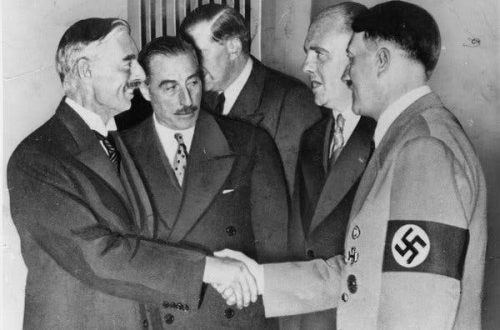In early 1987 the UK Jewish community was in uproar about the play, Perdition, which was due to be shown at the Royal Court Theatre in London. The play was written by Jim Allen, who had been associated with an extremist Marxist group. The controversy is obvious when one considers the author’s own words about the play: “it says quite plainly that privileged Jewish leaders collaborated in the extermination of their own kind in order to bring about a Zionist state, Israel.” (Time Out, January 21-28, 1987). While the play was cancelled because the Artistic Director lost confidence in it, a debate raged in the press about the historical aspects of the play, whether the play was antisemitic, artistic freedom and free speech.
Of all the articles written about the controversy, one of the most eloquently and passionately argued was that by the late Bernard Levin for The Times. (“Waking the dead to revile the living,” February 2, 1987, p.16). He accused the play of a “peculiar vileness” from which antisemitism “oozes.” He said the author had unashamedly reproduced “Stalinist disinformation,” to write a play “littered throughout with inexcusable errors and horrible lies.” Despite these views Levin was a passionate defender of free speech. He concluded his article as follows:
…free speech is for swine and liars as well as upright and honest men. I have insisted that any legally permissable view, however repugnant, is less dangerous promulgated than banned, and I would defend its promulgation even if the opposite were true. I have glorified in the central paradox of democracy, which is that it tolerates, and must continue to tolerate, the activities of those who wish to destroy it.
In all the beliefs I have lived, and I am minded to die in them; how then can I defend the suppression of this play? I cannot, which is not to say that if it had never been written it now should be. But it exists, and ‘He that is unjust, let him be unjust still; and he which is filthy, let him be filthy still.’ With a heavy heart, I yet must say it: Let them have their play.
It is a shame he is no longer with us.


